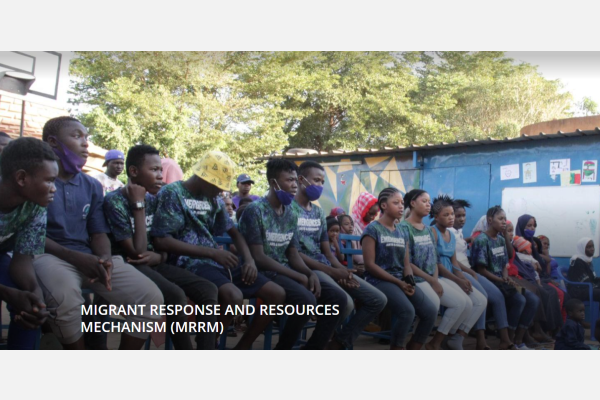Repositorio de Prácticas

Migrant Response and Resources Mechanism in Niger
Fechas
Tipo de práctica
Resumen
Niger sits at a crossroads for multiple migration routes in the Sahel and West Africa region. While the majority of migrants in West Africa and the Sahel migrate within the region or to North Africa, some also cross through Niger intending to depart to Europe via the Central Mediterranean Route. In recent years, a trend of pushbacks of migrants from Algeria and Libya has increased, often leaving people stranded in harsh desert conditions where they are vulnerable to dehydration, extreme daytime temperatures, and lack of safe shelter and food. Currently, the Migrant Response and Resources Mechanism (MRRM) program operates in Niger and several other countries. Through the MRRM, migrants can access direct assistance, health, shelter, mental health and psychosocial support (MHPSS), assisted voluntary return and reintegration (AVRR), and legal assistance. The services offered include: Addressing critical humanitarian needs of migrants in transit, primarily persons waiting to access the AVRR or asylum programme, through multi-sectoral assistance including shelter, non-food items, health, WASH, and food. Enhancing protection of migrants through MHPSS, information, legal support, and case management Strengthening the capacity of local communities to absorb and respond to shocks, including through social cohesion and peacebuilding activities. Search and rescue missions to identify and recover migrants stranded in the desert and at the border areas with Libya and Algeria. In its activities, IOM prioritises the protection of vulnerable groups, including children, women, and victims of trafficking. There are two accommodation centres that provide space for more vulnerable groups (one for unaccompanied children and families and one for women with and without children, and unaccompanied female children). In addition, IOM supports the State-run centre for victims and people at risk of trafficking. IOM also offers individualised case management for protection cases, cooperating with and referring to relevant partners. Since the July 2023 coup, IOM Niger has focused its activities on direct assistance to persons in vulnerable situations.
Partners involved include the government of Niger, including the Ministry of the Interior, the Direction for Territorial Surveillance (for Search and Rescue Missions), the Ministry of Justice and the associated National Agency for Legal Assistance, the Ministry of Health, the Ministry of Women and Children’s Protection, and the National Agency for Countering Trafficking; ECOWAS and national embassies of migrants’ countries of origin. IOM also cooperates with international and national organisations including UNODC, UNHCR
Beneficio e impacto
Lecciones clave
Despite these challenges, through the MRRM programme, IOM has led important initiatives such as the development of the 2023-2025 Strategy for Disability Inclusion and an associated action plan, as well as strategy to strengthen accountability to affected population strategy that is under development as of 2023. These efforts are aimed at ensuring that MRRM services are accessible to all migrants, and that migrants and their needs are at the centre of all assistance.
Recomendaciones(para replicar)
Innovación
Recursos adicionales
Fecha Enviado:
Más prácticas relacionadas:
- IOM’s Regional Programme Strengthens the Protection of Child Victims across North Africa and Key Routes
- Pacaraima Committee
- InfoContigo: Inter-agency attention platform for Refugees and Migrants
- Talleres de facilitación de diálogos de saberes: Introducción a la metodología de los diálogos interculturales
- Social Security Extended for Migrant Domestic Workers in Malaysia
Comentarios de los revisores pares:
*Todas las referencias a Kosovo deben entenderse en el contexto de la Resolución 1244 [1999] del Consejo de Seguridad de las Naciones Unidas.
Newsletter
Subscribe to our newsletter.